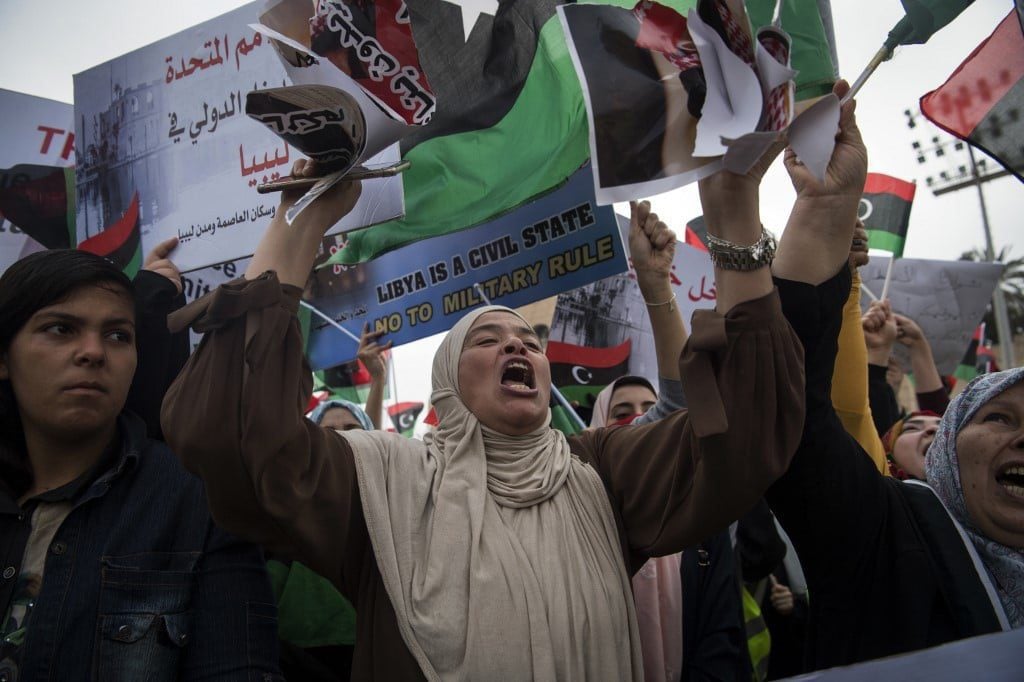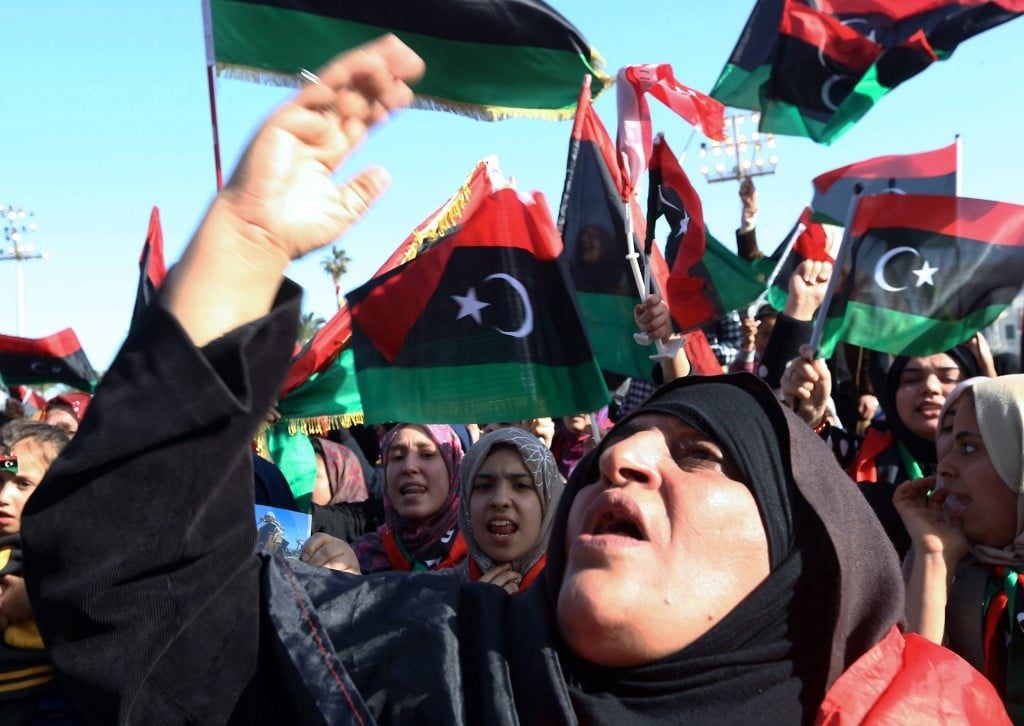
By: Mat Nashed
Libyan warlords have threatened and killed female activists since the country descended into a renewed civil war in 2014. The latest incident saw gunmen assassinate Hanan Al Barrasi in broad daylight in Benghazi, Libya’s second largest city. The grave of the 46-year-old lawyer was desecrated days later.
The killing took place shortly after Barrasi uploaded a video on social media on November 10. In the video, she spoke to the camera from her car and alleged that she had been ‘threatened’ for criticizing militias aligned with eastern warlord Khalifa Haftar, who heads the self-described Libyan National Army (LNA). Barassi had previously expressed support for Haftar despite accusing members in his family of corruption.
Her murder came more than a year after Libyan MP Siham Sergewa was abducted from her home in the middle of the night. The kidnapping occurred after she called for an ‘end to the bloodshed’ on Alhadath TV – a channel owned by Haftar’s son Saddam. Sergewa was referencing the LNA’s offensive on the capital of Tripoli, which sabotaged a U.N peace process and spiraled the country into more than 14 months of civil war.
The LNA later blamed ‘‘terrorists’’ for abducting Sergewa, yet witnesses told Human Rights Watch (HRW) that vehicles involved in the incident implicated militias fighting with Haftar. Sergewa hasn’t been seen since nor have authorities investigated her whereabouts.
Four years earlier, Islamic extremist groups were suspected of killing a spate of female activists. Intissar Al Hasairi was found dead with her aunt in the hood of a car on February 24, 2015. Activists believe that she was killed for promoting art and culture in Libya through her NGO Tanweer, which means enlightenment.
In 2014, Salwa Bugaighis, Fariha Barkawi and Salwa Yunis al-Hinaid were all murdered by unknown gunmen. Bugaighis, a human rights lawyer and an advisor to the Libyan Transitional Council (NTC), was the most renown activist assassinated. Analysts believe that she was targeted for breaking gender norms and using social media to encourage Libyans to vote in the general elections on June 25, 2014. That day, hooded gunmen entered her home and shot her in the head. Her husband was also abducted and never seen again.

Amnesty International argues that Bugaighis assassination was a ‘negative turning point for women in Libya.” The lack of any effective investigation conducted by Libyan authorities – who govern at the mercy of armed groups – sent the message that militias could kill female human rights defenders with impunity. In each subsequent murder following Bugaighis death, Libya’s rival authorities asserted that the killings were carried out by ‘terrorists’ or not politically motivated.
“The general security situation for Libyans deteriorated after 2014 but women were particularly hard-hit. The lack of accountability for the assassination exposed a climate of impunity for violence against women who speak out, causing some women to retreat from Libyan civil society and forcing others to flee the country,” said Heba Morayef, Regional Director for the Middle East and North Africa at Amnesty International, in 2018.
Of course, Libyan human rights defenders are being targeted irrespective of gender. But the dangers are compounded for female activists since they have so few, if any, allies willing to protect them. Even powerful tribes may be reluctant to wage a dispute over an outspoken women that breaks gender norms.
“People in Libya think that when women dare to participate in political life, they have broken a moral social code and deserve what happened to them,” said Hala Bugaighis, who is the cousin of Salwa, to The Independent.
Human Rights Watch has nonetheless called for authorities in east Libya to conduct a full investigation into the murder of Al Barrasi. But analysts and activists are under no illusions that the LNA will arrest and prosecute the perpetrators.
Equally shocking is that Al Barrasi was murdered during renewed United Nations—brokered peace talks, which are ongoing. The killing sparked widespread condemnation in the global community, but not as much among those invited to the negotiations. Most of the participants seemed too preoccupied with jockeying for powerful positions in the next government. But the talks in Tunis indicate that women most likely will acquire little, if any, influence in Libya’s future. Of the 75 Libyans participating in the negotiations, a little more than a dozen are women.
Female human rights defenders, like Rida Al-Tubuly, argue that international stakeholders frequently justify the exclusion of women from political forums by stating that key “Libyan actors are the ones against women’s political participation.” Al Tubuly believes that this is a dangerous logic that effectively surrenders Libya to the most authoritarian players competing for power.
“If there are no means for ordinary Libyans to take part in the political process, then how will we be able to change things on the ground,” she told the UN Security Council in November 2019.
Zahra Langhi, a co-founder of the Libyan Woman’s Platform for Peace and a close friend of Salwa Bugaighis, also notes that Libyan women have traditionally mediated disputes within families, tribes, and local communities. She adds that it’s common knowledge among Libyans that women previously assumed the role of peacemakers despite the lack of historical documentation.
Libyan women were also at the forefront of demonstrations that sparked the revolution against slain dictator Muammar Gaddafi. On February 15, 2011, attorney Fathi Terbil, who represented the families of victims that were massacred in Abu Salim prison in 1996, was arrested. Police eventually let him free after thousands of women demanded his release the next day. That protest triggered a revolutionary fervor that inspired a nation.
Hope has long faded for women human right defenders as they continue to bury their peers.
DISCLAIMER
The opinions expressed in this publication are those of the writer(s). They do not purport to reflect the opinions or views of Fanack or its Board of Editors.


